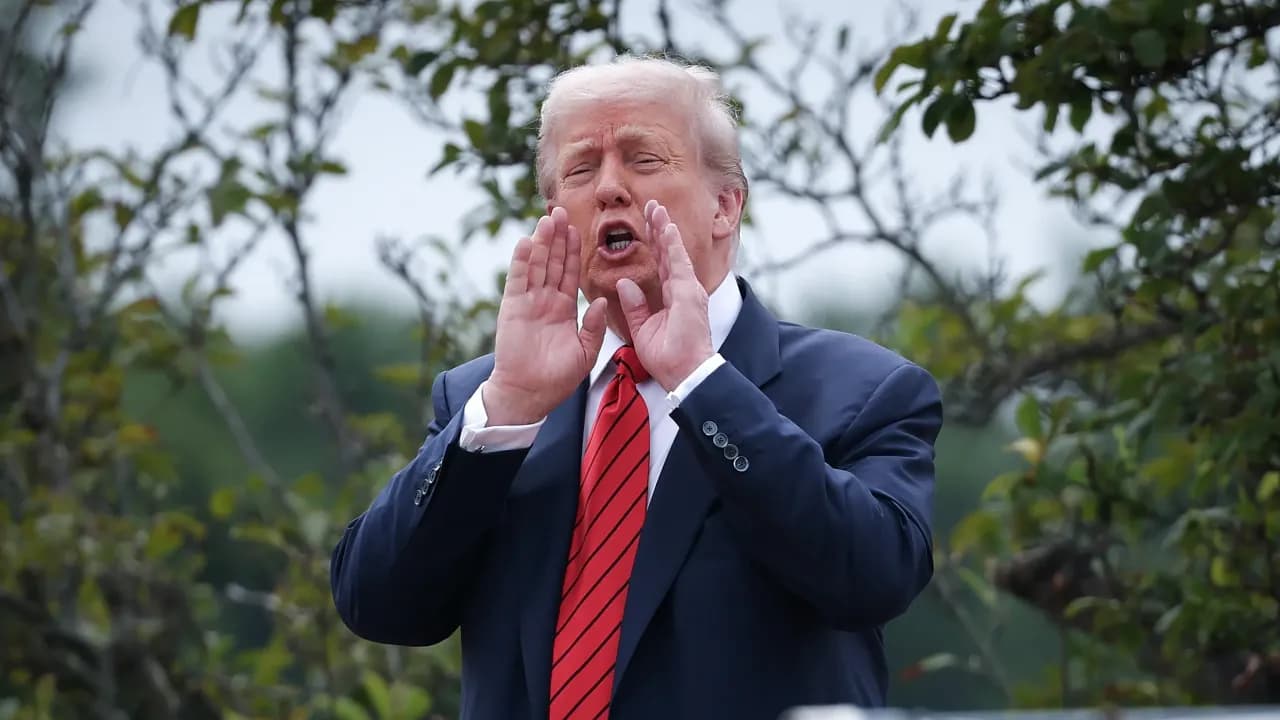The analyst identified Gokaldas Exports, Pearl Global, and Kitex Garments as three stocks significantly impacted by the tariffs.
The Indian textile sector remains in the spotlight after U.S. President Donald Trump doubled tariffs on Indian exports to 50% on Wednesday. Textile stocks such as Gokaldas Exports, Kitex, KPR Mills, and Pearl Global fell between 2% to 5% in opening trade.
Trump signed an executive order imposing an additional 25% tariff on Indian exports, saying India’s continued purchase of Russian oil indirectly supports the Russia-Ukraine war.
India responded by calling the tariffs “unfair, unjustified, and unreasonable” and stating that it is “extremely unfortunate that the US should choose to impose additional tariffs on India for actions that several other countries are also taking in their own national interest.”
The revised tariff could undermine the competitiveness of India’s textile and apparel exports, especially against regional peers like Bangladesh (20%), Vietnam (20%), and Cambodia and Indonesia (both 19%), which face significantly lower duties.
The tariffs have already begun impacting the sector, with reports claiming that textile and apparel exporters from Tiruppur, Noida and Surat have paused manufacturing of their US orders.
Trump’s tariff hike has delivered a significant blow to key Indian garment exporters heavily reliant on the U.S. market, said SEBI analyst Sumesh Guleria.
He identified Gokaldas Exports, Pearl Global, and Kitex Garments as three stocks significantly impacted by the tariffs.
Gokaldas Exports has plunged 22% over the past week. Nearly 70% of its revenue comes from the U.S, the analyst noted. The stock was down 1.6% at ₹701.40 in early trade.
Pearl Global was down 2.7% to ₹1,297.50. It has shed over 21% in the past week. The company also derives around 70% of revenue from the American market.
Kitex Garments was hit the hardest, as it brings in around 90% of its earnings from the U.S. The stock already hit its lower band at 5% just minutes after it began trading on Thursday.
Guleria emphasized that the sharp sell-off teaches a crucial lesson: geographic concentration carries significant risk, particularly in the increasingly unpredictable global trade environment.
According to SEBI-registered analyst Pradeep Carpenter, stocks like KPR Mill may also come under additional pressure.
KPR Mill was down 2.9% at ₹1,008.70 in early trade, having shed 15.2% over the past week.
For updates and corrections, email newsroom[at]stocktwits[dot]com<
